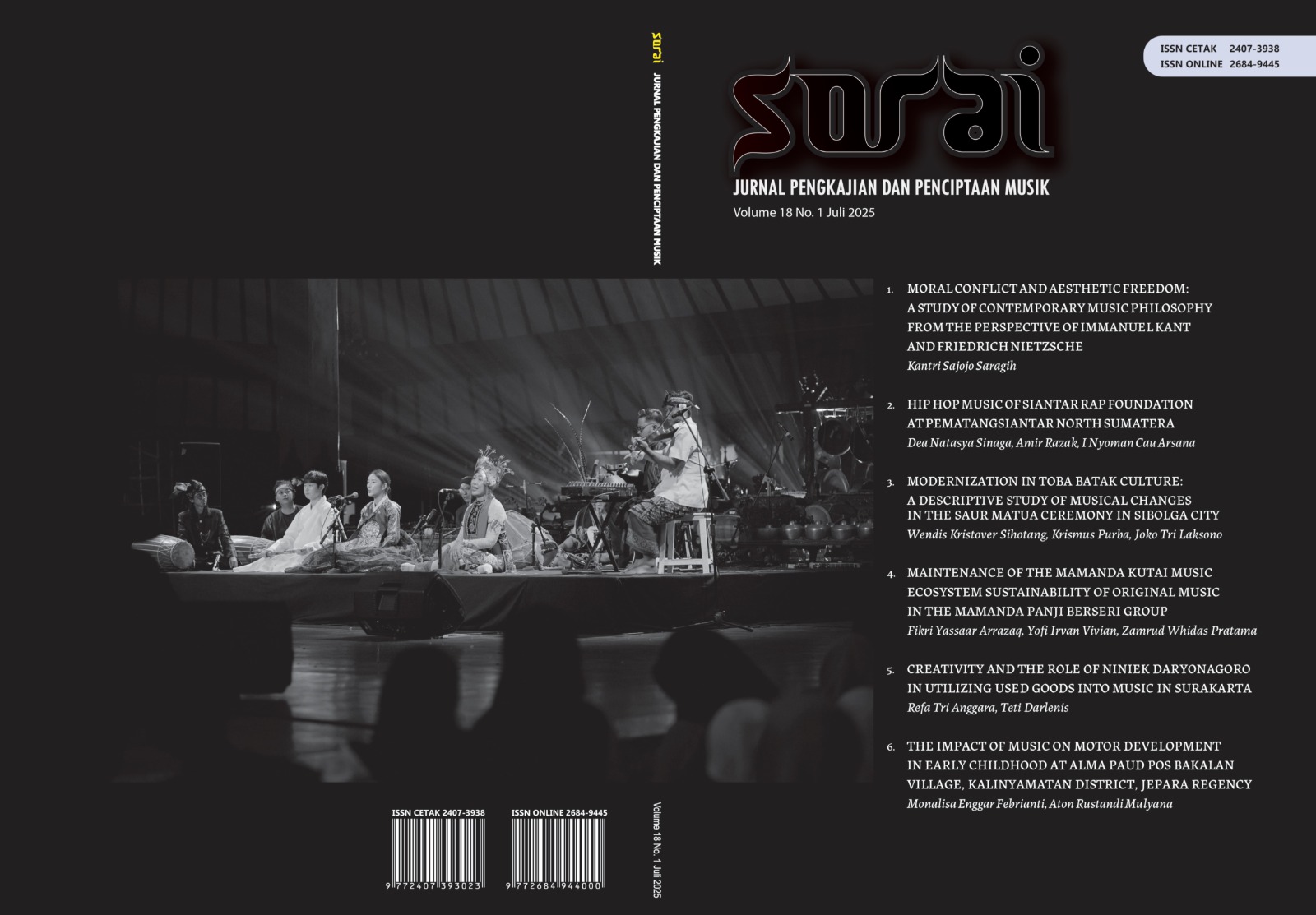MODERNIZATION IN TOBA BATAK CULTURE: A DESCRIPTIVE STUDY OF MUSICAL CHANGES IN THE SAUR MATUA CEREMONY IN SIBOLGA CITY
Main Article Content
Abstract
Modernization brings significant changes in various aspects of community life, including social, economic, political, and cultural, through the presence of technology. The city of Sibolga on the West Coast of North Sumatra is a multi-ethnic area, inhabited by Minang, Nias, Chinese, Javanese, and Batak Toba groups, with Batak Toba as one of the largest sub-ethnic groups. As times change, the Batak Toba community in Sibolga has also experienced the impact of modernization, especially in the implementation of the traditional saur matua ceremony. The modernization process encourages adjustments in the procedures of the ceremony to remain relevant to people's current lives. Some traditional elements are still maintained, but there are changes, especially in the aspect of traditional music which is now adapted to current needs and tastes. This study uses a qualitative ethnographic method to explore socio-cultural dynamics, especially the traditional music practices of the Batak Toba in the saur matua ceremony in Sibolga. The results of the research show that the change in music in this ceremony is influenced by the entry of Christian values, so that the community seeks to integrate religious teachings with tradition. The music used is now mixed, combining Western instruments with Batak musical instruments, and featuring a repertoire of Batak Toba instrumental music with modern compositions such as Palti Raja. This transformation has generated various community reactions, both support and criticism, which reflect the dynamics between the preservation of tradition and adaptation to the times.
Downloads
Article Details

This work is licensed under a Creative Commons Attribution-ShareAlike 4.0 International License.
Copyright
Authors who publish to Sorai: Jurnal Pengkajian dan Penciptaan Musik agrees to the following terms:
- Authors retain copyright and grant the journal right of first publication with the work simultaneously licensed under a Creative Commons Attribution License (CC BY-SA 4.0) that allows others to share the work with an acknowledgment of the work's authorship and initial publication in this journal.
- Authors can enter into separate, additional contractual arrangements for the non-exclusive distribution of the journal's published version of the work (e.g., post it to an institutional repository or edit it in a book), with an acknowledgment of its initial publication in this journal.
- Authors are permitted and encouraged to post their work online (e.g., in institutional repositories or on their website) before and during the submission process, as it can lead to productive exchanges, as well as earlier and greater citation of published work.
